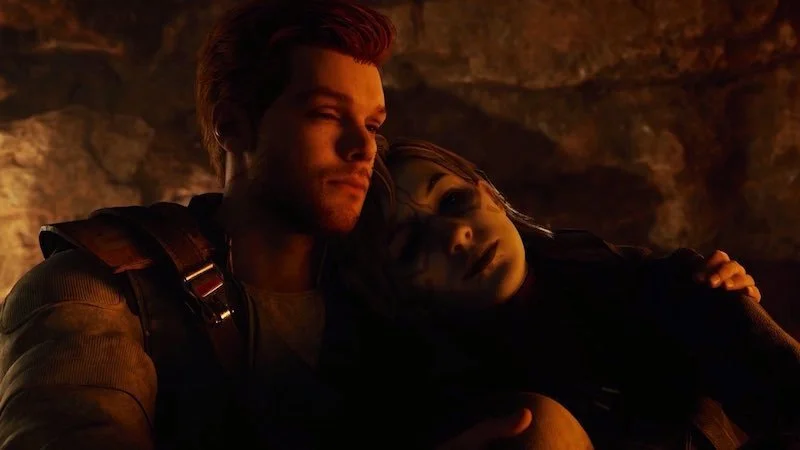Commitment: How This Tenet Of Jedi Philosophy Brought The Order Down And How It Could Help Revive It
Image Source: Reddit
Jedi are often hailed as these ideal characters within the Star Wars universe. One only needs to look at how often they appear in stories, whether they be prose, graphic novels, or on film, to see how popular they are. It’s understandable. Fans love them, likely for the fact that they can control stuff with their mind and wield plasma swords capable of cutting through almost anything and deflecting lasers.
When we do that, though, it’s easy to ignore or forget their flaws, and they were indeed flawed. They certainly came across in some instances as contradictory. For one, they talked about conquering the Dark Side, which is obviously a challenging thing to do, but they tended to unhesitatingly reject any Force-sensitive youngling who was beyond a certain age. As an order, the Sith used the Jedi’s own Code to manipulate them into transitioning from peacekeepers to generals. While that happened, because of their insistence on remaining independent, they allowed the politics of fascism to fester and grow within the Republic until it was too late, and it transitioned into the Empire.
RELATED:
At the center of these flaws resides one of the tenets of their Code: attachment.
According to the Jedi Code, attachment and possession were forbidden. At the heart of this philosophy was the idea that attachment was the result of one’s inability to accept that change is a part of life. It was a failure in the Jedi way of overcoming fear of loss and greed. They could be all things related to attachment. They could love, be compassionate, and care, but they had to train themselves to let go of things, lest they travel down the perilous path of trying to keep things as they were, unchanging. In a way, this tenet of the Code reflects the nature of anxiety. Anxiety is a fear of the unknown, a fear of change. Overcoming that is something all who suffer from anxiety have to go through, and the Jedi Code seems particularly aimed at training a Jedi to conquer this fear.
Ultimately, though, this tenet was instrumental in their downfall but could also be their redemption.
Image Source: EW
We can see this in the example of Anakin Skywalker. One of their procedures was to not admit Force-sensitive children over a particular age into training. At first, they thought to do the same for Anakin. “He is too old.” Master Windu said it. Even Yoda said it about Luke. The rationale for this is shown in Anakin’s case. By taking them in beyond a certain age, they can form attachments to parents and other loved ones. It makes some sense; Children would have a hard time leaving their families. But if part of the Code is overcoming fear, or as Luke tells Rey, “Confronting fear is the destiny of a Jedi,” then how can this avoidance of the challenge of training an older Force-sensitive be seen as anything other than a fear of what might happen with the youngling? Why is training a youngling not also seen as a challenge for a Jedi, one to overcome, one to confront?
This refusal to meet that challenge ultimately cost them Anakin Skywalker. Their adherence to this rule, which is grounded in a rigid interpretation of the attachment tenet, made them blind to the needs of Anakin as he grew up. The signs were all there, and as a result, Anakin’s story became the great tragedy of the Star Wars universe. It comes off a little lazy, to be honest. They didn’t want to train older younglings or Force-users because it would be “difficult"? It’s a little odd, in how they are presented, that they were so rigid on this tenet. Obi-Wan threatens Anakin with expulsion from the Order for his insistence to go back for Padme when she falls out of the dropship. Yet, there are numerous other Jedi that had different degrees of interpretation of this part of the Code. Some encouraged love but not to be a slave to it. Some even said sexual relationships were permitted as long as they eschewed attachments. If they’re going to be such a strict order, these sentiments shouldn’t be present, and they are far from the only ones to have a different interpretation of what attachment means.
***Jedi Survivor Spoilers Ahead***
To be fair, there were reasons to have this component, and we only have to look at the case of Bode Akuna in Jedi Survivor for an example. If you’ve played the game, you know then that Bode is a Jedi as well, albeit a fallen one. He worked for the Empire because he, in the course of his hiding during Order 66 and the subsequent hunt for surviving Jedi, fell in love with a woman and had a child. In his desperation to keep her safe, he helps Cal find Tanalorr, a planet that is impossible to get to without a device and one that could keep him and his daughter safe. He attacks Cal and Merrin when they try to make the case that it could be a shelter for all.
Bode Akuna’s daughter.
Image Source: Pro Game Guides
As a father, I get the desire to protect your child, but I find Bode’s rationale a problem, and proper guidance could have avoided his descent to the Dark Side and, ultimately, his death. He wanted the planet for himself and his daughter only and, for some reason, feared Cal bringing other survivors there. He used the word “strangers.” To be that fearful of strangers in general, even though they would be refugees and survivors themselves, is a clear sign of how things with an attachment could go wrong.
Their rigidity on this concept further reinforces the idea that they were unyielding and too restrictive, and that led to their arrogance and blindness to the threats growing within the Republic. But there’s hope, and it resides in an acceptance of a couple of things: the growth mindset and an acceptance of free will or individual interpretation.
Image Source: Vox
The growth mindset likes to boast about the word “yet,” as they do in education when they say, “You don’t know this…yet.” The Jedi already had the framework in place to address a reform of their ideological philosophy. In one instance, there is a second Jedi Code, one that younglings would speak, that implies a more lenient approach is possible. In addition, they always talked about striving towards their tenets, which implies that they acknowledge that perfection is not the expectation, but striving for it instead. Remember, it’s the destiny of the Jedi to confront fear. The key to the growth mindset is that guidance is a key component. Even Jedi Masters receive guidance from their brothers and sisters. This opens the possibility of Jedi having loved ones, and as we saw in Jedi Survivor, with good people to guide them, they can be kept from falling to the Dark Side.
A lot of this may seem wishful thinking since the Order has been essentially eradicated, the survivors scattered through the galaxy. That’s just the thing, though. The ones that survived are in a unique position to effect the change needed to revive the order and allow for a more well-rounded and adjusted Jedi Order. We know that’s going to be the focus of the next movie, where Rey is going to be trying to rebuild the Jedi Order. We’ve seen other surviving Jedi make the adjustments they’ve needed to survive, and on the whole, they’ve managed to resist the fall to the Dark Side. For example, at the end of Jedi Survivor, Cal opines as much to Merrin, telling her he loves her and claiming the Jedi need to change. Or we can look at Luke in The Last Jedi, where he says the Jedi need to end.
Image Source: Twitter
I think this is also a reflection of ourselves. People tend to fixate on Jedi as being these perfect beings. But there are a couple of things to consider with this thought process. For one, no being is perfect, and as pointed out above, striving to be better each time is really what Jedi are working toward because none of them will be perfect. The Dark Side is always there, always a tempting draw for Jedi. If they were perfect and then that would never be a risk for them.
If any attempt to create a new Jedi Order is put forth, these things need to be something they consider. It’s perfectly fine to try and regulate our emotions, but in the end, judgments are made with a combination of emotions and rationality. Suppressing emotion never goes well in the end. But if Jedi were instead to manage their emotions and keep an open mind toward guidance, a new Jedi Order could avoid the pitfalls that cost them everything before.
READ NEXT:
Source(s): Wookieepedia

















